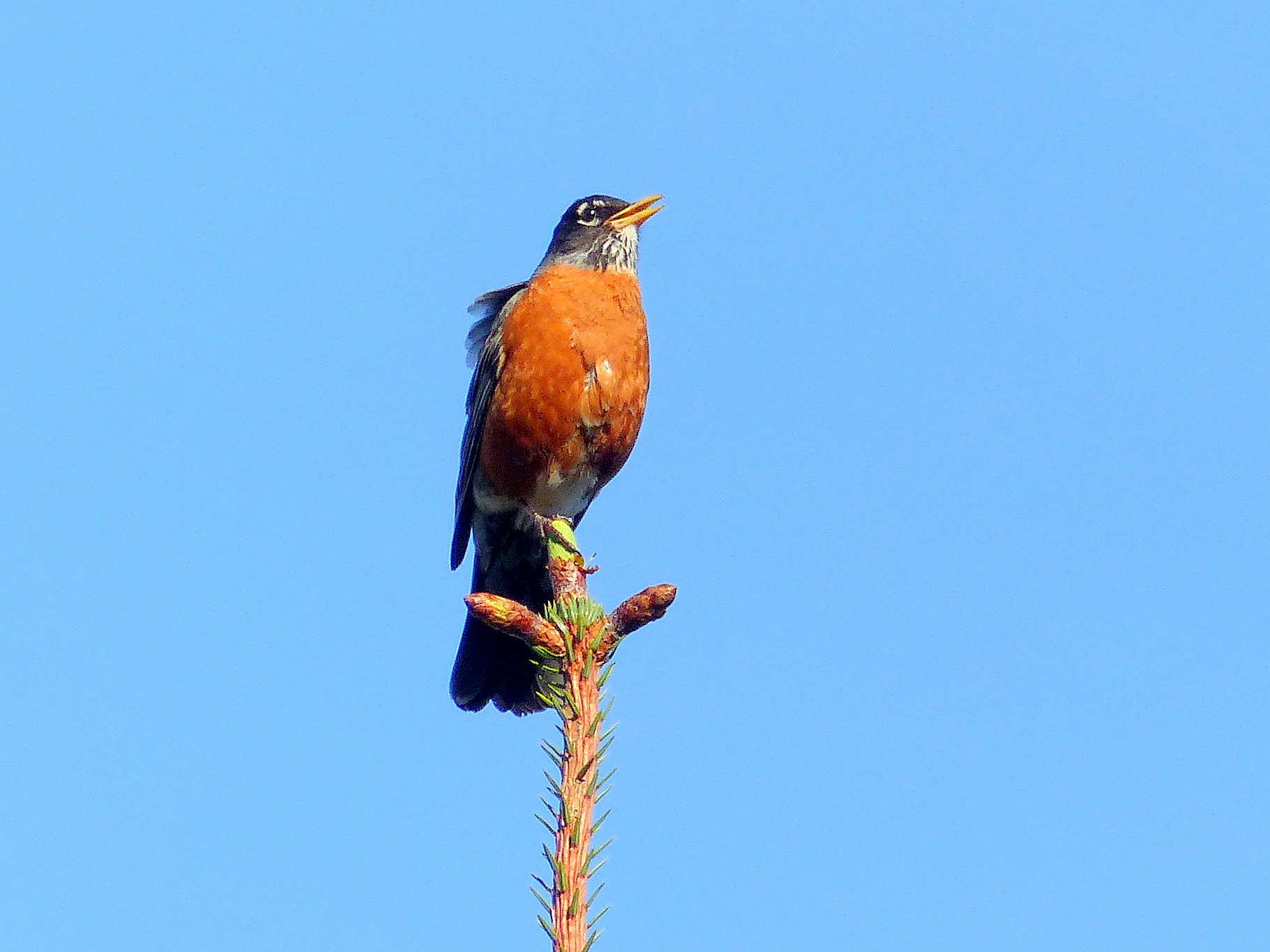In Your Own Backyard
Text by Liz McKenzie and Photos by Richard Nelson
In Your Own Backyard
"We were taught to sit still and enjoy the silence. We were taught to use our organs of smell, to look when apparently there was nothing to see, and to listen intently when all was seemingly quiet."
--Luther Standing Bear (Oglala Lakota)
In Native American tribes and many other traditional cultures around the world, people have been listening to the sounds of the natural world for thousands of years. In many of these communities, voices from the wild are regarded as an important part of learning about and enjoying the world. Elders teach that animal sounds and calls can give important information about the surroundings, carry messages, predict the future, or simply make life more beautiful. For example, a Koyukon Indian man from Alaska once said of the common loon: "I like to listen to it all I can and pick up the words it knows".
In Western cultures, we have nearly forgotten to listen for these sounds and the competition for our hearing is intense—cars, planes, machinery, industry, iPods, televisions. But there's an amazing concert of wild sounds all around us, if we take the time to tune in.
Simply by stepping out into the backyard, visiting a nearby park, or sitting quietly in a patch of forest, we can begin to hear a rich array of natural sounds—birds singing, wind whispering in high branches, small animals scratching on the leafy ground, wavelets splashing on a lakeshore, perhaps an insect or frog chorus.
The longer we listen, the more we can tune our ears to the sounds all around us.
Richard Nelson lives in a small town on the southern coast of Alaska. Over the years, he's had many wild visitors to his backyard—from operatic wrens and chattering red squirrels to silent deer and brown bears feasting on huckleberries. Here are a few of the bird voices he's recorded by slipping into the backyard or even pointing a microphone out from the bedroom window:
Every visit to the backyard can lead to new sound discoveries, beginning with the question: Who is out here today?
Dawn Chorus
Each place on earth has a dawn chorus where the birds sound off, triggered by the rising light. Some birds begin singing with the tiniest predawn glimmerings while others are inspired by the first rays of the sun, and more reluctant singers wait until the sun is above the horizon.
Here's what a summer dawn sounds like in the boreal forest of far northern Alaska.
And here's a very different dawn chorus an entire hemisphere away, in an open eucalyptus woodland on a ranch in southern Australia.
Have you heard the dawn chorus in your own neighborhood? There's a whole world waking up every morning, so grab something warm to drink, head out the door, and get ready for the morning concert to begin.
Recording Nature's Voices
One of the best ways to learn and to appreciate natural sounds is to start recording them. You don't need fancy equipment—even a cell phone or digital camera that records sound will work.
If you want to get a little fancier, you can get a digital recorder, a microphone, and headphones, and even make your own parabolic dish to focus the sounds.
Richard Nelson explains how he got started recording natural sounds and how anyone else could do the same:
Getting to know the voices--Who is making that sound?--is easier than you might think. There are lots of places online to hear bird songs or calls and compare them with your recording. Some books come with cd's of wild sounds, especially birds. There are even apps for phones or other digital devices, so while you're out there listening or recording, you can check to see whose voice you just heard.
One of the best ways we know to learn about the creatures making the sounds you hear is to talk to a teacher, biologist, naturalist park ranger, birdwatcher, or—if you're especially lucky—an elder who knows tribal traditions. These folks are a treasure trove of information and they might know of other great sounds to search for and record.
Sharing your recordings is another great way to enjoy natural sounds. Put them on your blog or other social media. Spread the joy! Once we start listening for these audio gifts from the natural world, our lives are richer…and we appreciate even more the importance of wild places as a home for nature's beautiful voices.


